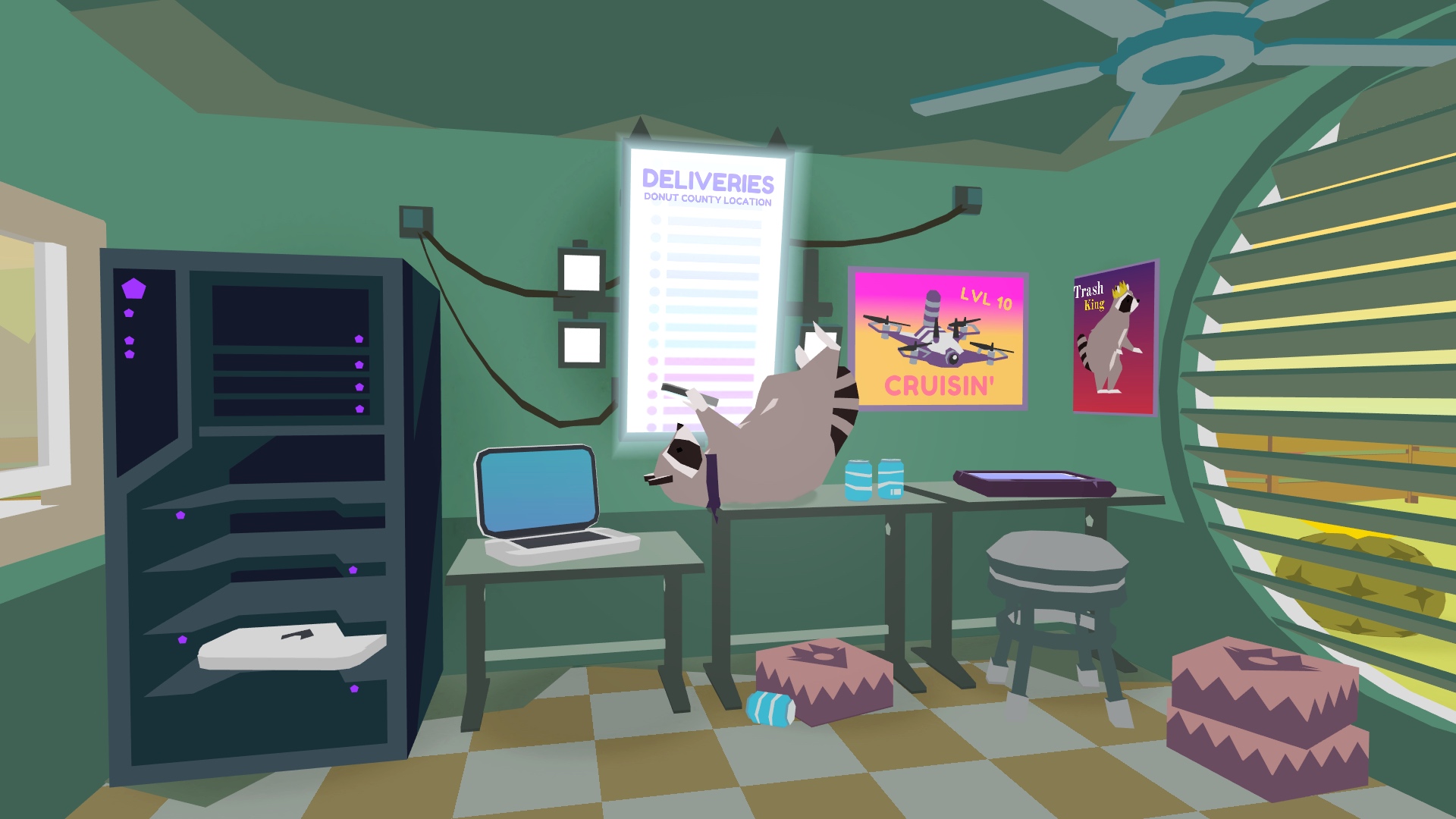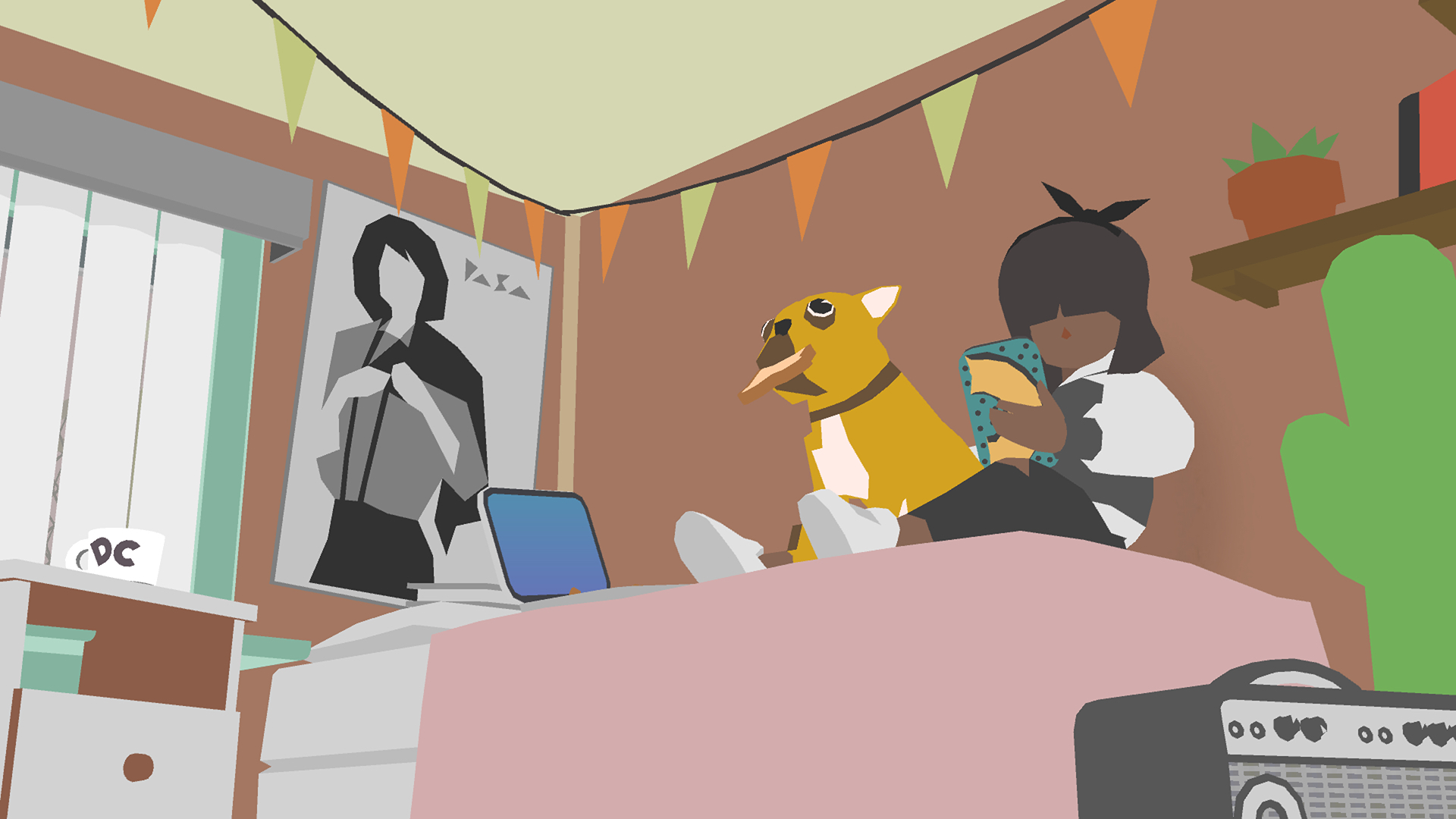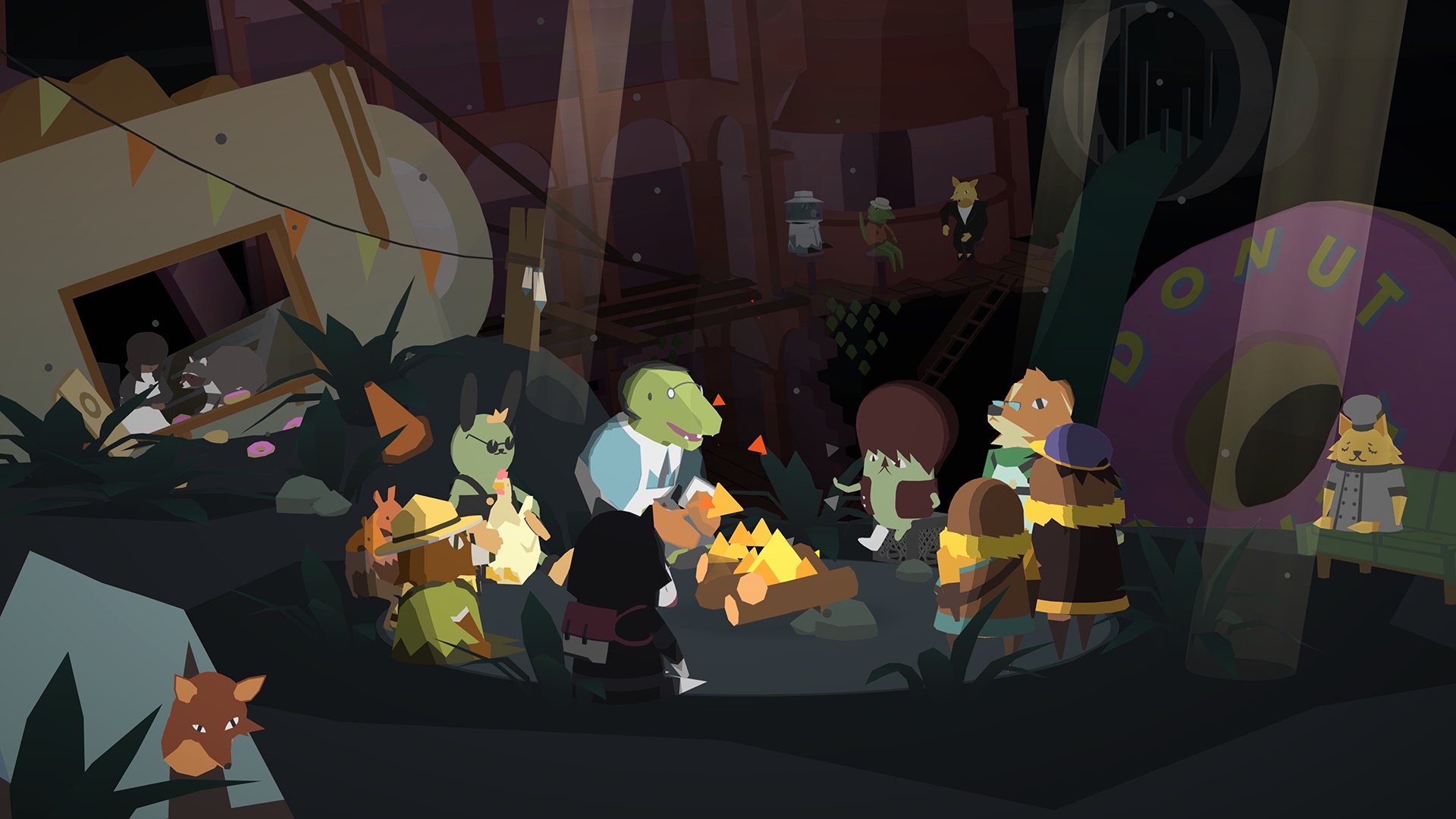Mobile-gaming titans keep ripping off indies

Voodoo is a French publishing company founded by Alexandre Yazdi and Laurent Ritter in 2013 with a focus on bringing iOS and Android titles to as many smartphones as possible. This was a time when the App Store was booming, and a few high-profile developers were raking in the dough. Ridiculous Fishing, Device 6, Year Walk, The Room Two, Impossible Roadand Badland all came out in 2013, for starters, and Voodoo has been capitalizing on the energized mobile market since with its own titles, including Snake Vs Block, Paper.io, Flappy Dunk and Rolly Vortex.
Voodoo proudly describes itself as a company that “develops and publishes highly casual mobile games” — not just casual, but highly so. Today, Voodoo is a ubiquitous name in mobile gaming; it’s the No. 1 publisher on the App Store in terms of downloads with more than 150 million monthly active users. Voodoo games generated 300 million downloads in 2017, and that figure is on track to hit 1 billion this year. In May, Goldman Sachs invested $200 million in the publisher.
Financially, Voodoo is crushing it. But in the eyes of many independent developers and their fans, Voodoo is a shady beast constantly hunting for scraps of game ideas that it can quickly transform into profit.
Take one of Voodoo’s latest titles for example: Hole.io. Players control holes in the ground that grow bigger as they consume objects on a city street. It’s a simple, clever idea, but it didn’t come from Voodoo.

Ben Esposito is a Los Angeles game developer who’s made a name for himself working on indie hits The Unfinished Swan and What Remains of Edith Finch. His latest project is Donut County, a game in which players control a hole in the ground that grows bigger as it eats the surrounding environment.
Esposito had this “hole in the ground” idea and began working with the mechanic in 2012, and since then Donut County has evolved into a story-driven game celebrating the sights of Los Angeles in a clean, pastel-art style. After six years of development, Esposito has recently been ramping up his marketing efforts — Donut County is due to hit iOS, PC and Mac this year, and it’ll be a reasonably priced premium title, meaning it won’t be free-to-play.
Meanwhile, Hole.io is free, and it hit the App Store, Google Play and desktops in June. It’s the No. 1 game on the App Store in the Arcade category, and it’s been downloaded more than 1 million times on Google Play.
“There’s clearly a market, and Voodoo has found it,” Esposito said. “They’re starting to dominate it, and that’s why people are investing in them. I think it’s a different market than the type of stuff I’m making and my friends are making. Because we’re making these very specific, interesting, weird, not-cheap games.”Hole.io‘s existence was a shock to Esposito. The mobile-gaming market was in its infancy when he began working with the hole mechanic in 2012, and indie developers were waking up to the possibility of making real money on the App Store; the mobile market was just beginning to flood. Today, the stores are oversaturated: Android users have 3.8 million apps to choose from, and Apple fans have 2 million, according to Statista.
As Esposito explained it, he felt as if he were living in a Donut Countybubble since 2012. He was heads-down, evolving its theme and refining its mechanics, and wondering the entire time whether people would actually enjoy playing an entire game as a hungry hole. It was an innovative idea, and the market hadn’t yet been proved. Everybody might hate it, his subconscious whispered as he worked over six years, but they might also love it, so keep going.
And then, on June 25th, 2018, he woke up to Hole.io. He left a note on Twitter explaining the situation — Donut County was finally on track to go live this year, but its core mechanic had been cloned and made free on the same mobile store he was targeting.
“I didn’t realize how emotional making a video game would be,” Esposito said. “I think luckily I’m at a point now where all the major decisions were made; I’m just kind of going through the motions to fix the bugs and make everything work. The emotional aspect of it doesn’t matter as much at this point. But had this happened a year ago, I would have been pretty devastated.”
Esposito has seen the havoc of cloning first-hand. Voodoo isn’t alone in the world of seemingly shady App Store publishing; it shares the market with companies like Gamenauts and Ketchapp. Gamenauts is the company behind Ninja Fishing, a title that notoriously knocked off Apple Design Award winner Ridiculous Fishing a solid two years before the game’s release in 2013, devastating its two-man development team, Vlambeer. (Last month Voodoo launched its own free clone of Ridiculous Fishing).
“That was a much bigger deal for them when they first got cloned,” Esposito said. “It was before it was released. They obviously had a really interesting, really special idea and a really good execution of it. They were working extremely hard to make the best version of it. Then they got slapped with this. They got the same message I did, which is that the content doesn’t matter.”
Ketchapp made a name for itself in 2014 with the release of 2048, a free game that ripped off Asher Vollmer’s Threes, which cost $2 at launch. Ketchapp is also behind Skyward, a game that looks suspiciously like Monument Valley, and Run Bird Run, which riffs on the Flappy Bird idea. Ketchapp is owned by Assassin’s Creed publisher Ubisoft.
Voodoo and Ketchapp are two of the biggest publishers on the App Store, and if Voodoo’s $200 million investment from Goldman Sachs is any indication, there’s a high cap on their potential for revenue. These companies don’t just publish clones, of course — Ketchapp has a library of more than 100 titles alone, while they’re both seeking out more developers every day.
Voodoo VP of Gaming Gabriel Rivaud explained his company’s business model on the App Masters podcast in August 2017. Essentially, developers from around the world send in beta builds or gameplay videos and the folks at Voodoo decide whether they want to help bring that idea to market as a free title (with in-app purchases, ads and a paid ad-free version). It’s a fairly quick process, Rivaud said.
“What we will look at is whether the game is well-executed — if it’s good quality, it’s not buggy, if the person understands, thinks about the user experience,” Rivaud said. “And whether it’s innovative. Is it just a copy of a very famous game? Then we won’t really consider it. We’re looking for teams who are good technically and then who also can twist gameplay.”
Rivaud is looking for Innovative ideas, a lot like Esposito’s hole mechanic. Scratch that — to Voodoo, it’s Hole.io‘s mechanic, pitched to the publisher among dozens of other emails that day.
“I guess the part that feels the worst is that Voodoo might not even know that that game copied my game,” Esposito said. “They don’t have to know, because someone else did it and then pitched it to them. They probably thought it was a really cool, inventive idea, and then they made it. They might be surprised to hear there’s another game that’s like that.”There are few options for cloned developers. Aside from putting the publisher on blast on social media and spreading the word about the original game, there isn’t much to be done. Apple and Google are the gatekeepers, but legally they have little power to remove games that look or play like other titles. Game mechanics and ideas aren’t protected under copyright law, though unique assets can be — and this is actually a benefit to the industry. It means Nintendo can’t copyright the idea of “jumping” and id Software can’t prevent other developers from using “first-person shooting” as a core gameplay method.

“I don’t think it’s worth it for me to pursue it any more than just starting this conversation,” Esposito said. “I’m making this game by myself. I do everything on it. It takes extremely large amounts of my energy to just get it done. Whatever I might potentially gain from seeking legal action, it’s probably so costly to do, so it’s not worth it for me.”
The video game industry is like any other creative field, with developers taking ideas from other games and infusing them with their own perspectives, driving the medium forward and leading to ever-more-spectacular experiences.
Clones take this idea of sharing and evolution to an ugly place. Launching someone else’s idea, free, sometimes before the original comes to market, is an uncomfortable way to conduct creative business.
Uncomfortable, but legal.
“I guess the weird, flip-side, positive thing about it is that there’s a huge market for a single idea,” Esposito said. “You can resell the same idea, there can be five versions of it and they can all make money, which is weirdly nice to hear. That’s my silver lining of it. People have proven the hole-in-the-ground thing is cool. Maybe if they think my game is a sequel to that game, I’ll take it. Whatever. That’s fine.”
source:-.engadget